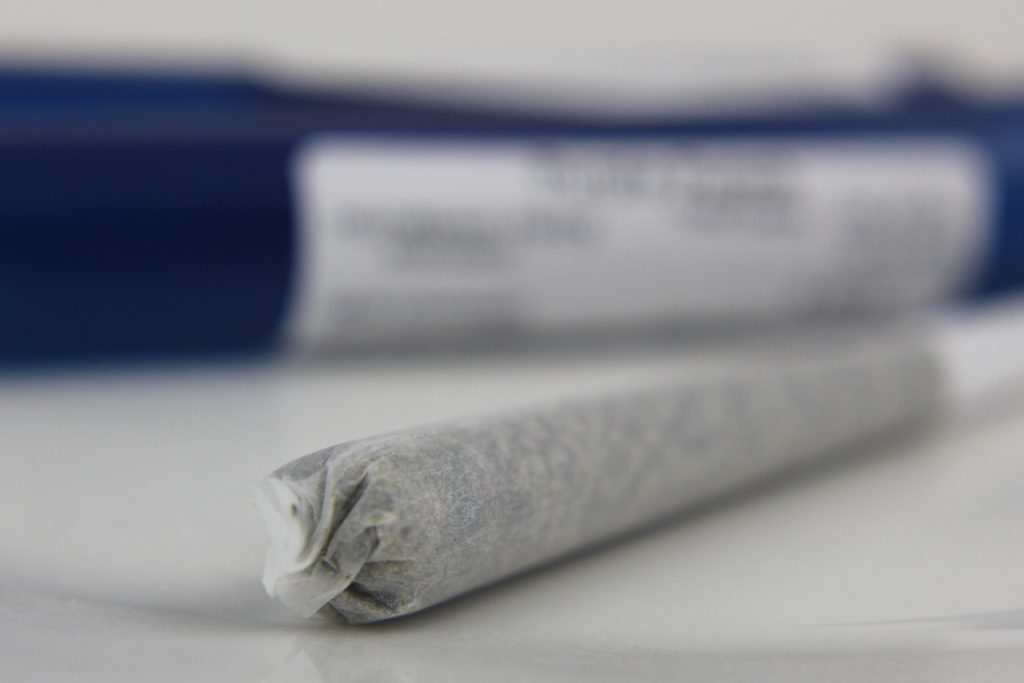Will Republicans Legalize Marijuana?
Gov. Evers and two-thirds of voters support it. How long will legislators resist?
There was a time when gambling was illegal in Wisconsin. By the mid-1980s 25 states across America had legalized a state lottery yet Wisconsin held out. The state Assembly rejected a bill to legalize a lottery by an overwhelming vote, 69-29, in 1983.
But as surrounding states like Illinois started a lottery, with huge jackpots getting media coverage, legislators began to hear from constituents asking for a lottery, as a 1989 story I wrote for Milwaukee Magazine reported. Many legislators, particularly Democrats, saw it as a tax on the poor and a social evil. But eventually the pressure grew too great. “I initially opposed it,” former state Sen. Mordecai Lee confessed, “but I eventually decided not to lay down my life in front of that locomotive.”
Which brings us to a new people’s favorite: marijuana.
An overwhelming majority of Americans — 88% — favor the legalization of medical marijuana. In Wisconsin, 83% supported this as of 2019, in the only time the Marquette Law School poll asked this question. That included 96 percent of Democrats and 68 percent of Republicans.
“The debate on this has changed dramatically in the last 10 years,” Republican state Sen. Patrick Testin told Urban Milwaukee in 2019. “Given the fact that 33 other states have adopted medical marijuana, I think there’s an appetite for this among the public in Wisconsin.”
Or as Dr. Michael Miller, an addiction psychiatrist at Rogers Memorial Hospital in Oconomowoc and past president of the American Society of Addiction Medicine, put it at a conference that year on medical marijuana: ”I think stopping the marijuana reform train is impossible in this country.”
Indeed, by February of this year 37 states, three territories and the District of Columbia had legalized the medical use of cannabis products. But not Wisconsin.
“I’ve held town halls across my district and a lot of people come to me and ask about medical marijuana,” Testin noted. “Often they are people who suffer from cancer, chronic pain, and other medical conditions.”
With so many voters supporting this, you might Testin could work with Gov. Tony Evers, Democrats and a minority of Republicans who might favor medical marijuana to get the legislation passed. But only bills supported by the majority of Republicans — rather than the majority of the Legislature — get anywhere under the top-down GOP leadership.
The situation is similar if slightly less dramatic when it comes to legalizing recreational marijuana. “Just 12% of U.S. adults supported legalization in 1969, according to a November 2021 Gallup poll – a figure that rose to 31% in 2000 before accelerating above 50% after 2013,” a U.S. News story reported. By 2022 two-thirds of Americans wanted recreational marijuana use to be legalized under federal law and in their own state.
In Wisconsin there has been a huge shift in opinion on this since 2012, as Marquette Law School pollster Charles Franklin has found. In 2012-14 just 50% of those surveyed supported legalization with 45% opposing it and 5% not sure. By August 2022 that had changed to 69% in favor and just 23% opposed, a 46% margin in favor of legalization.
Legalization is supported by almost all religious groups, the MU polls have found, including those with no religion (87% in favor), mainline Protestants (60%), Catholics (55%) and those with other religions (69%). Only born-again Protestants opposed legalization, and by a small margin, at 50% against and 44% pro-legalization.
In the November election, voters in Milwaukee, Dane and Eau Claire counties overwhelmingly supported legalizing and taxing marijuana sales in advisory referendums, as did voters in five Wisconsin cities: Kenosha, Racine, Appleton, Stevens Point and Superior.
As with the lottery, as more states legalize medical or recreational marijuana, it creates a momentum for others to join the trend. Nationally, 21 states – along with Washington, D.C. and Guam – have legalized recreational marijuana, Wisconsin is one of just 13 states that have not passed a law legalizing recreational or medical marijuana. The 13 exceptions are largely southern and western states, along with Iowa and Indiana.
Wisconsin is increasingly surrounded by states that have legalized medical marijuana (Minnesota in 2014) or gone all the way to legalizing recreational pot including Michigan (2018) and Illinois (2019).
Evers has promised to include a proposal to legalize marijuana in his budget proposal next year. He will certainly have the voters behind this proposal, but will that be enough?
“At some point in time, the will of the people will become the law of the land,” Evers declared. “I sure the hell hope it happens within the next four years because we just can’t, as a state, continue to say, ‘well, 80 percent of the people want X’ and we try to do X and then nothing happens.”
Murphy's Law
-
National Media Discovers Mayor Johnson
 Jul 16th, 2024 by Bruce Murphy
Jul 16th, 2024 by Bruce Murphy
-
Milwaukee Arts Groups in Big Trouble
 Jul 10th, 2024 by Bruce Murphy
Jul 10th, 2024 by Bruce Murphy
-
The Plague of Rising Health Care Costs
 Jul 8th, 2024 by Bruce Murphy
Jul 8th, 2024 by Bruce Murphy























In Wisconsin it’s not just ultra conservatives against legalization of marijuana, I think the Tavern League has also lobbied against it. Wisconsin’s highly profitable drinking culture could be in impacted.
These Taliban/Republicans are blind to the thousands of Badgers who cross state lines daily to procure muggles/mota/ganga for medical or psychic healing. Get on the bus, Gus!
Wisconsin is rarely an early adopter, let alone a trendsetter. When was the last time Wisconsin was ahead of the curve or riding the wave?
To Polaris: Wisconsin was the national trendsetter in the Progressive Era, so, roughly 130 years ago.